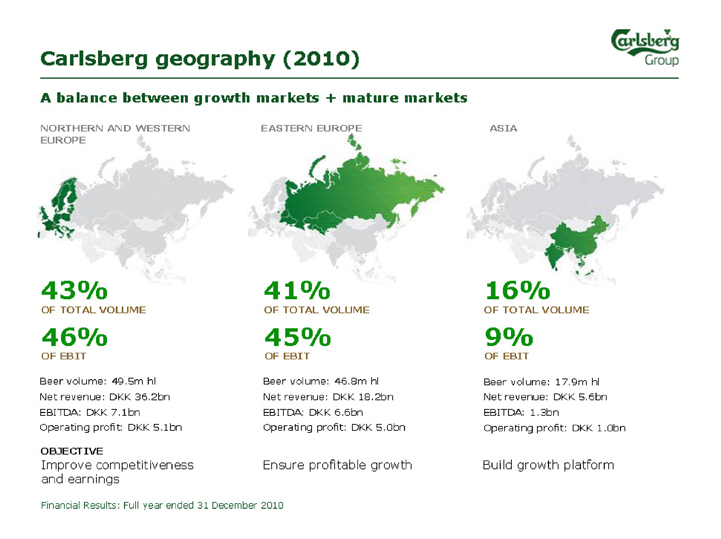Carlsberg’s profits fall on Russian tax increase
Obviously, it did not pay off for Carlsberg that it did not immediately pass the massive tax hike in Russia on to consumers. The world’s number four brewer waited until the summer before it finally raised prices. On 21 February 2011, Danish brewer Carlsberg reported a fall in fourth-quarter net profit. Net profit for the last three months of 2010 fell to DDK 301 million (USD 55 million; EUR 40.4 million) from DKK 383 million in the same period 2009. The brewer gets almost half of its earnings from eastern Europe, where operating profit dropped 56 percent in the quarter.
Carlsberg said beer volumes in eastern Europe last year fell by 9 percent. This was mainly driven by destocking in the first quarter and significant price increases in Russia following the 200 percent hike in excise duty on 1 January 2010.
Carlsberg’s Baltika unit had a 39.7 percent share of the Russian market in the fourth quarter compared with 39.3 percent a year earlier. AB-InBev’s Russian share increased to 16.2 percent from 15.7 percent in the period, while Heineken’s dropped to 11.6 percent from 13.9 percent, Carlsberg said in an online presentation, citing ACNielsen research.
Group sales rose 1 percent last year to DKK 60.1 billion (EUR 8.1 billion), the company said. Excluding acquisitions and currency fluctuations, revenue fell 3 percent. Analysts had estimated sales of 60.6 billion kroner. The volume of beer sold declined 2 percent, excluding acquisitions and disposals.
For the whole of 2010 Carlsberg Group reported a net profit of DKK 5.4 billion (EUR 724 million), up from DKK 3.6 billion kroner the year before.
"For 2011 we believe market dynamics will improve slightly, not least in eastern Europe where we anticipate the Russian market to return to growth," said CEO Jørgen Buhl Rasmussen. Russia’s beer market will expand 2 percent to 4 percent this year, compared with a decline of a “low single-digit” percentage in northern and western Europe.


